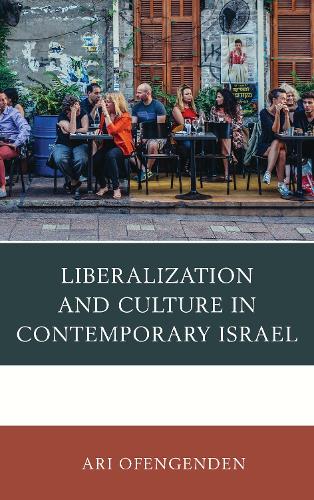
Liberalization and Culture in Contemporary Israel
(Hardback)
Available Formats
Publishing Details
Liberalization and Culture in Contemporary Israel
By (Author) Ari Ofengenden
Bloomsbury Publishing PLC
Lexington Books
15th September 2018
United States
Classifications
Professional and Scholarly
Non Fiction
Anthologies
Globalization
Media studies
Popular culture
306.095694
Physical Properties
Hardback
212
Width 161mm, Height 232mm, Spine 22mm
503g
Description
In this book Ari Ofengenden examines the ways that Israels integration into global economy has affected its main stream culture. Ofengenden uses works of Israeli film, literature, and television, from the past 30 years to conceptualize the changes in Israels culture. He analyzes the central phenomena associated with Israels integration into the global economy including: the demise of realism and the rise of commercial culture, the production of film, television, and novels for western audiences, and the critiques of capitalism in media. Ofengenden also explores the refiguring national identity through critique of masculinity. The book also discusses the affect globalization and marketization has had on modern narratives of the Arab-Israeli conflict.
Reviews
This is a timely study that offers a unique, if not outright, ignored perspective on modern Hebrew culture. While most studies on modern Hebrew culture tend to focus on the construction of national and ethnic identities, this study underscores the crucial role of economic and social processes in shaping the Israeli cultural landscape. -- Eran Kaplan, San Francisco State University
Ari Ofengenden offers a most persuasive thesis on the cultural earthquake that Israel is experiencing alongside its integration into the global information economy. His book shows how mainstream Israeli films and novels embody liberal ideology, while domestic culture leans toward a commodified neo-tribalism. Both trends over-shadow progressive culture, embodied in realism and modernism, that was typical to Israel in the past. This book is a tour de force of powerful interpretations of key Israeli films, novels, and television series. It explores the entanglement of the seemingly diverse cultural trends of universal liberalism and particular ethno-nationalism. A must-read for anybody seeking an updated understanding of contemporary Israeli culture. -- Uri Ram, professor, Ben Gurion University of the Negev; President of Israeli Sociological Association
Author Bio
Ari Ofengenden is professor of Hebrew language and literature
